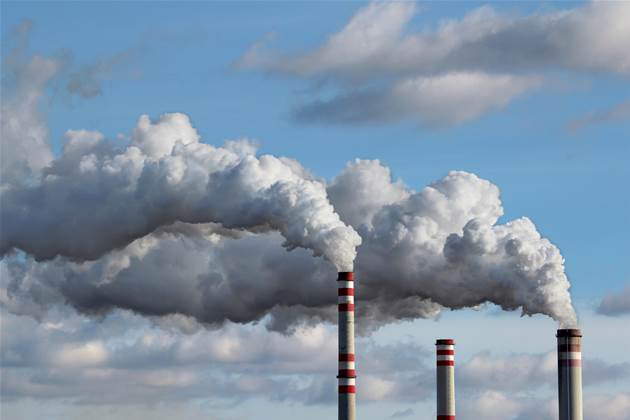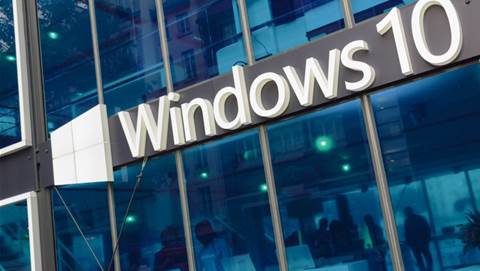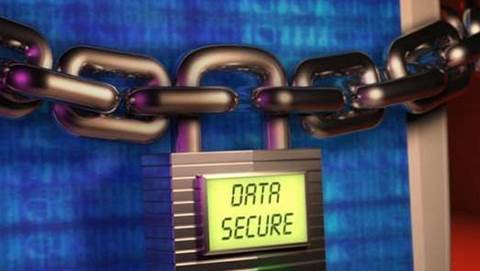Canberra Data Centres has claimed confidentiality over its greenhouse gas emissions data, arguing disclosure could reveal ‘trade secrets’ about its data centre operations to competitors, new documents obtained by iTnews reveal.

The data centre provider made the argument in its application to have its scope two emissions – or indirect emissions – and net energy consumption data from 2020-21 withheld from publication by the Clean Energy Regulator.
The application for secrecy under the National Greenhouse and Energy Reporting (NGER) scheme – which was made in November 2021 – is continuing to be assessed by the regulator tasked with monitoring and reducing emissions.
Under the NGER Act, companies can apply to have their data withheld on the grounds that publication could reveal trade secrets or a “matter of commercial value that would be destroyed or diminished”.
A trade secret must relate to a specific facility, technology or a ‘corporate initiative’ connected to the company.
CDC is the only company required to report emissions and energy data in 2020-21 to apply for an exemption, as revealed in the government’s corporate emissions and energy data report earlier this year.
All other data centres to emit at least 50 tonnes of greenhouse gases – the threshold for reporting – reported their 2020-21 data in full, including Equinix, NEXTDC, Amazon, AirTrunk, Global Switch and Fujitsu.
Emissions secrets
Documents obtained under freedom of information laws show CDC’s application to have its emissions data withheld relates to a corporate initiative, but the details of the initiative have been redacted.
The documents show that CDC’s work with “national security and other critical [federal] government departments that store sensitive and classified information” is at least partially related to the corporate initiative.
“CDC provides specialist data centre services to government and national security customers with high information classification and security requirements and is subject to specific requirements regarding the handling and disclosure of customer data,” the application states.
CDC’s federal government clients include the departments of Defence, Attorney-General’s, Home Affairs and Foreign Affairs and Trade, as well as the Bureau of Meteorology, Services Australia and the Australian Federal Police.
The application also reveals CDC has taken steps to limit knowledge of the trade secret through “confidentiality agreements” with managers, as well as “other steps” that have also been redacted. It is also clear that unknown persons outside of CDC have knowledge of the trade secret.
‘We take our reporting obligations serious’: CDC
A spokesperson for CDC declined to comment on whether the corporate initiative related to its government contracts when contacted for comment by iTnews, but said the company is “dedicated to keeping our clients’ data safe and secure”.
“CDC will always take all steps possible to protect and maintain the confidentiality of our clients’ interests and information,” the spokesperson said.
CDC also said that it “takes seriously its reporting obligations and will continue to work with the government to ensure the NGER ACT and regulatory reporting accurately reflects the different emissions profiles of different jurisdictions”.
“CDC is conscious of the potential environmental impact of the sector and has set concrete actions to lead the data centre industry in renewable energy initiatives,” the spokesperson added, pointing to the fact that all its Canberra-based data centres are 100 percent powered by renewables.
Of the three categories of trade secret available to withhold emission data, the term ‘corporate initiative’ has been designed to be opened-ended and, as such, is not defined in the NGER Act.
“Reporting obligations under the NGER Act apply to a wide range of industries and sectors," a CER spokesperson said
“The term ‘corporate initiative’ is therefore wide-ranging and may apply to either a trade secret or any other matter having a commercial value that belongs to CDC.
“The application must demonstrate to the CER how publication of the greenhouse and energy data could reasonably expect to destroy or diminish the value of that matter.”
Scope two greenhouse gas emissions are released “from the indirect consumption of an energy commodity”, whereas scope one emissions are released “as a direct result of an activity”.
Like other major data centre providers, almost all of CDC’s emissions would likely be in the form of indirect emissions.
Emissions expectations
CDC's confidentiality claims run counter to general trends observed in the industry around the disclosure of environmental and sustainability initiatives.
Speaking about the industry generally, rather than specifically about the CDC case, Forrester principal analyst Sam Higgins said it was hard to understand why any company would want to withhold information at a time when clients were becoming increasingly savvy about environmental, social and governance (ESG) reporting.
“Fundamentally, I find it hard to understand, given the interest from end user enterprise in receiving emissions information, how [the data] could really be used nefariously or considered damaging when you’re talking about a tonnes of CO-2 equivalence measures,” he said.
“It’s certainly unclear to me how the release of an aggregate metric built on emissions for scope two – being electricity, heat and stream – could be useful in delivering a picture of real-world operation, given that when it comes to data centres there are multiple facilities in multiple locations with vastly different levels of service and redundancy.”
Higgins pointed to Forrester’s 2022 priorities survey, which shows 61 percent of Australian technology decision-makers consider “improving IT’s environmental sustainability” a high priority.
“I think what concerns me from a technology executive perspective is that the fundamental ability to achieve carbon neutrality requires your partners to be transparent, honest, open and willing to provide emissions-related information through the digital supply chain so you can plan your own efforts,” he said.
“So, it raises more questions than it puts to bed when some says in one breath: ‘I’m 100 percent renewable in terms of my energy consumption’, and in another says ‘but I refuse to tell you what the rest of my emissions are’ when one would assume that they should be less.”


























